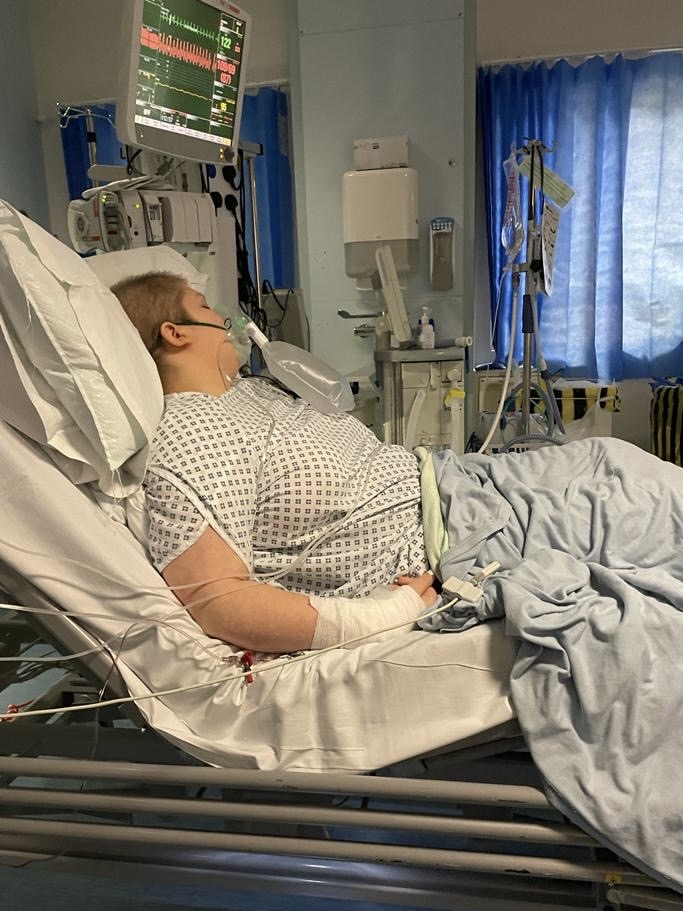Health anxiety after cancer
After finishing cancer treatment lots of people find themselves more worried about their health than before. Find out more about health anxiety and how to manage it here.
- Health anxiety might make it difficult to tell the difference between regular aches and pains, and something more serious
- It’s important to share with your care team if you’re struggling with health anxiety as they might be able to support you with this
What is health anxiety?
It’s not unusual to get nervous about your health sometimes, but if it’s starting to get in the way of your day-to-day life then you might have health anxiety.
Health anxiety might make it difficult for you to see the difference between regular aches and pains, and something more serious. If you’re really worried about having a more serious illness you might have some physical symptoms of stress. This can include symptoms like increased heart rate, difficulty breathing and panic attacks. These symptoms might worry you more and then add to your concerns about your health. You can find out more about the physical signs of stress on Mind’s website.
How does health anxiety affect people after cancer?
After being diagnosed with cancer, you might have been focused on getting through your treatment. It can be strange when treatment ends, as you have less contact with your care team. You also won’t have the same routine and might not have the same support around you as you did before.
We often hear from young people that this can be a very difficult time, particularly for your mental health. One of the ways this can impact you is feeling anxious about your health. It’s common to worry that aches and pains are a sign of relapse or recurrence (cancer coming back). It can be difficult to know what something is to be worried about and what is a usual pain. You can find out more about fear of cancer coming back here.
What are the signs of health anxiety?
As we mentioned, sometimes getting worried about your health doesn’t mean you have health anxiety.
With health anxiety, you might do certain things over and over again, or always try to avoid certain things. You might have health anxiety if you:
- Worry about your health so much that it gets in the way of your daily life
- Frequently ask people around you to confirm you’re not unwell (this often only makes you feel better for a short time before you feel anxious again)
- Frequently mentally or physically check your body for symptoms
- Avoid information about health, or constantly search for information about health
- Avoid doing certain things, like you would if you were ill
- Avoid going to follow up appointments from your doctor
What causes health anxiety?
Having health anxiety has been linked to a number of things, including going through a very stressful period or being around someone who was very worried about your health when you were young. Experiencing cancer has also been connected with developing health anxiety.
If you are worried about any symptoms, or if worrying about your health is getting in the way of your life, get in touch with your care team if you can. They might be able to talk to you about the likely cause of symptoms or point you in the direction of support.
What should I do if I think I have health anxiety?
Managing health anxiety can be difficult. It can become a cycle where the symptoms of stress confirm to you that you’re seriously unwell. When you ask for reassurance from other people that you’re well, it might not help you feel better for very long or you might not believe them. This might even mean you struggle to believe advice from doctors or the result of tests.
It’s always worth speaking to your care team if you’re struggling with these kinds of worries, as they will be able to help get the right support. They will also be able to tell you about any signs and symptoms its helpful for you to look out for, and any late effects of your treatment that might appear, possibly up to years later.
Sharing how you’re feeling and what you’re experiencing with your friends and family, or those closest to you, can also help. If they can learn more about what you’re experiencing, they can hopefully better support you. They might also be willing to come to appointments with you, which you might find helps you feel more confident in sharing how you’re feeling with your care team.
